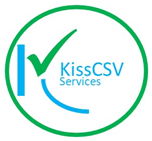
Keeping your projects simple, straightforward & compliant...
Service - CSV & GxP
CSV & GxP
Computerized system validation (CSV) is a process of ensuring that computerized systems used in regulated industries, such as pharmaceuticals and medical devices, are reliable, accurate, and fit for their intended purpose.
GxP is a term that stands for “good practice” guidelines and regulations. The “x” represents the specific field or domain of the industry, such as clinical (GCP), manufacturing (GMP), distribution (GDP), laboratory (GLP), agriculture (GAP), and so on. The “c” or “C” stands for “current”, meaning that the GxP requirements are updated regularly to reflect the latest scientific and technological developments.
The purpose of GxP is to ensure that the products and services in these industries are safe, effective, reliable, and fit for their intended use. GxP also aims to protect the health and well-being of consumers and patients, as well as the environment. GxP compliance involves establishing, implementing, documenting, and maintaining a quality management system that follows the best practices and standards in each industry.
Some of the benefits of GxP compliance are:
· Continuous improvement: GxP compliance encourages organizations to audit and assess their quality management systems regularly. It also helps them to monitor changes in regulatory requirements over time and identify areas for improvement.
· Improved data quality: GxP compliance ensures that data is accurate, complete, current, traceable, accountable, and permanent. It helps organizations make better decisions based on reliable data.
· Product quality and safety: GxP compliance ensures that products are manufactured according to standardized protocols and procedures. It also ensures that products are tested for quality control measures before they are released to the market.
· Improved efficiency: GxP compliance eliminates unnecessary procedures and streamlines processes. It increases productivity by encouraging standardized procedures, documentation standards, and quality control measures.
· Increased market access: GxP compliance can help organizations enter new markets or expand their existing ones by meeting the regulatory requirements of different countries or regions.
CSV is therefore needed for GxP compliance because it helps to:
· Protect the safety and quality of products and services that may affect human health or the environment.
· Demonstrate compliance with the regulatory requirements and standards that apply to the industry.
· Reduce the risk of errors, failures, or deviations that may compromise the integrity of data or processes.
· Improve the efficiency and effectiveness of operations and decision making.
· Enhance the reputation and trustworthiness of the organization.
CSV involves testing and documenting how a computerized system performs its functions under various conditions, such as normal operation, error handling, data entry, output generation, etc. CSV also requires evaluating how a computerized system interacts with its users, hardware, software, personnel, and documentation. CSV should be based on a risk-based approach that prioritizes the validation activities according to the level of risk associated with each component of the system.
ALCOA+
ALCOA+ is a set of data integrity principles that are used to ensure the quality and reliability of data in regulated industries, such as pharmaceuticals and medical devices. ALCOA+ stands for:
- Attributable: Data should be linked to its source and traceable to the individual who observed and recorded it.
- Legible: Data should be clear and easy to read.
- Contemporaneous: Data should be recorded at the time of observation.
- Original: Data should be the first record of the observation.
- Accurate: Data should be correct and free from errors.
- Complete: Data should be comprehensive and include all relevant information.
- Consistent: Data should be uniform and follow a standard format.
- Enduring: Data should be preserved and remain accessible throughout its lifecycle.
- Available: Data should be available for review and inspection by authorized personnel.
- Traceable: Data should be traceable to the original source and to other related records.
ALCOA+ principles are important for GxP compliance because they help to protect the safety and quality of products and services that may affect human health or the environment. They also help to demonstrate compliance with the regulatory requirements and standards that apply to each industry. By following ALCOA+ principles, organizations can improve their efficiency, productivity, performance, reputation, trustworthiness, customer satisfaction, market access, innovation potential.
"Let us demonstrate how to ensure your systems comply with ALCOA+".


